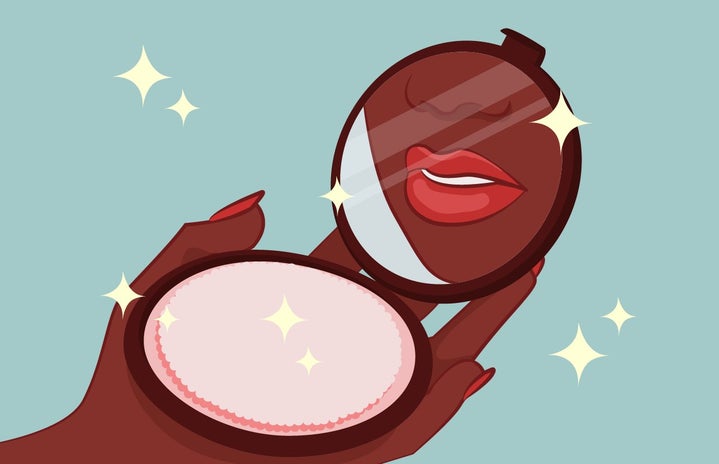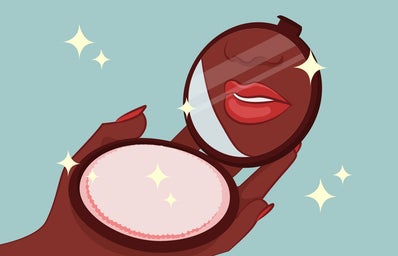As a dark-skinned brown girl, I’ve struggled with makeup my entire life. Stealing my mom’s makeup as a kid was a coming-of-age experience many of us can relate to, but to say that taught me absolutely nothing is an understatement.
My mom, who has the same skin tone as me, always had a foundation and powder four to five shades lighter due to the South Asian beauty standard of pale skin. Trying to navigate the world of makeup with an already rigid perception of beauty, lack of advice, and limited resources at the time was one of the most challenging things I dealt with growing up.
I’m not a makeup expert by any means, but I wanted to share some tips and tricks I’ve learned to help you navigate the tumultuous world of makeup that wasn’t exactly built for dark-skinned women.
Learn Your Undertone
Undertones are exactly what the word states: the tones that are present under your skin. They are often divided into three categories: warm, cool or neutral.
Warm undertones have deep red, golden, or yellow complexions. Cool tones are more pink or blue, while neutral tends to be a mix of both. Make sure to check your skin under natural light to determine what category you fall under.
Dark skin is often always categorized as warm-toned, but make sure to double-check. If your makeup base leaves you looking super red or orange, you’re most likely not using a shade with the correct undertone.
If you ever find yourself in Sephora debating between two shades that look identical, this is where knowing your undertone comes in clutch. Some liquid foundation and concealers will have a “W” for warm, “N” for neutral, or “C” for cool, along with the shade number to help differentiate the colours. For those that don’t have the letter indicator, search for the shade online, and undertones are often listed in the product’s description.
I recommend the Sephora Collection Best Skin Ever Liquid Foundation ($27) for beginners. Each shade states the shade number, along with the undertones. It will either say for yellow, pink or neutral undertones, making it easy to decipher between shades and affordable for beginners to play around with. The shade range is impressive, and the formula is long-lasting and malleable while still easy to apply.
Don’t Be Scared of Blush
Up until recently, I finally started to wear blush. For years, I avoided wearing it, fearing that I would look like a clown or, even worse, ashy. However, when I stopped being afraid to add more colour to my makeup, I saw the wonders that blush does for dark skin.
At first, I noticed blushes made me look orange or too red, but I realized that you always need a brighter blush than what you think you need. Bright pinks gave me a glowy finish rather than the ashy matte I was used to.
Bright pinks and berry cream blush tones also dramatically add to creating a glowy effect. The viral Rare Beauty Soft-Pinch Liquid Blushes ($32) in the shade “Grateful” worked amazing on my skin, simultaneously looking bold and natural.
An underrated favourite of mine is the MAC Glow Play Blush ($45) in the shade “Heat Index.” Its putty-like texture is the perfect mixture of a cream and powder formula. With its strong pigment yet natural look, I would strongly recommend it.
Less is More
I always thought that to be good at makeup, you need to wear a lot of it; now I know that piling on a ton of it won’t hide your mistakes; it will only accentuate them.
When starting to do your makeup, start slow; it’s easier to add more than take off. Don’t be too hard on yourself; makeup is so personal and will take you a while until you feel like you’ve perfected your routine. Be willing to take risks and experiment while adding to the features that you already have. Remember that makeup is a reflection of how you feel or how you want to feel.
Makeup, for me, became a form of self-expression and celebration rather than a tool to conform. As I share these tips and tricks, I encourage you to not only navigate the insane world of makeup but to redefine it for yourself. Remember, makeup is how you feel and a form of art that evolves with you. So, have fun with it. Your unique journey in makeup is a reflection of your individuality.
This year, I took my mom to get colour-matched for the first time. It was the first time she had ever gotten a foundation that matched her skin colour. Makeup is meant for individuality, not conformity.


